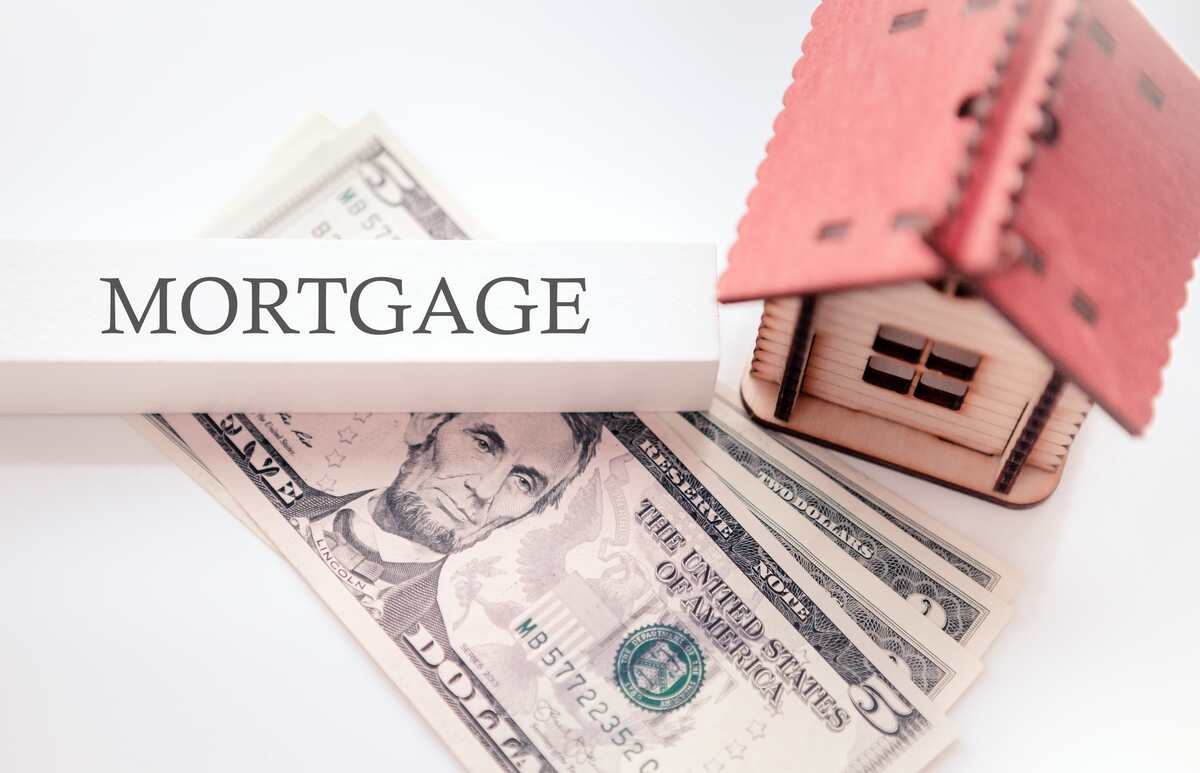Types of Government-Backed Mortgages & How They Work
July 27th, 2023

Are you considering buying a home but feeling overwhelmed by the variety of mortgage options available?
Navigating the world of mortgages can be complex, especially when it comes to government-backed loan programs. These loans are designed to provide more affordable and accessible financing options for homebuyers. Whether you're a first-time buyer or looking to refinance, it's important to understand the advantages and requirements of each type of government-backed mortgage.
In this article, we will explore the various types of government home loans and delve into how they work. By gaining a deeper understanding on this subject, you can confidently approach the homebuying process and find the right mortgage for your financial situation.
What is a Government-Backed Mortgage?
A government-backed mortgage is a home loan that is insured or guaranteed by a federal agency such as the Federal Housing Administration (FHA), the U.S. Department of Agriculture (USDA), or the Department of Veterans Affairs (VA). Unlike traditional loans, which are issued solely by private mortgage lenders, government home loans are backed by the federal government, allowing lenders to offer more favorable terms.
These loans are not obtained directly from the government, however. Instead, borrowers apply for them through private mortgage lenders. The federal government agency guarantees a portion of the loan, which reduces the risk for lenders and enables them to extend financing to borrowers who might not qualify for conventional loans.
FHA loans are popular among first-time homebuyers due to their lower credit score requirements and lower down payment compared to conventional loans. USDA loans are designed for low- and moderate-income borrowers looking to purchase homes in rural areas, and they often offer 100% financing. VA loans are ideal for active-duty military members, veterans, and their families, offering favorable terms such as no down payment requirement and competitive interest rates.
Overall, government-backed mortgages provide borrowers with opportunities to secure favorable terms and achieve their homeownership goals.

Government-Backed Mortgage Loans vs Conventional Loans
Unlike conventional loans, Government-backed mortgage loans are insured or guaranteed by a federal government entity, such as the Federal Housing Administration (FHA) or the Department of Veterans Affairs (VA).
This means that if the borrower defaults, the government entity will pay the debt. Since the risk for the lender is reduced, these loans often have more flexible credit requirements and lower down payment options, making them perfect for first-time homebuyers or those with lower credit scores.
Another important difference is that government-backed mortgages are considered non-conforming loans. This means they don't meet the rules and standards set by Fannie Mae and Freddie Mac for conventional mortgages. While Fannie Mae and Freddie Mac are government-sponsored enterprises, they don't provide government-backed loans. Instead, they are owned by private shareholders and purchase mortgages from lenders.
Government-Backed Mortgage Types
There are three types of government-backed mortgages: FHA, USDA, and VA loans, each catering to specific borrower needs.
Understanding these types of government-backed mortgages can help potential homebuyers make informed decisions when seeking financing options.
USDA Loans
USDA Loans are a type of government-backed mortgage program specifically designed to help borrowers in rural areas become homeowners. They are offered by the U.S. Department of Agriculture (USDA) and have some unique features that make them an attractive option for eligible borrowers.
One major advantage of USDA Loans is that they do not have a specific minimum credit score requirement set by the USDA. However, it's important to note that individual lenders may have their own credit score requirements in addition to any set by the USDA.
In addition, USDA Loans do not require a down payment, which can be a significant barrier for many first-time homebuyers. Instead, borrowers are required to purchase two types of mortgage insurance: an upfront mortgage insurance premium (MIP), which can be financed into the loan amount, and an annual mortgage insurance premium, which is paid monthly.
FHA Loans
FHA loans, backed by the Federal Housing Administration, are a popular option for low- and moderate-income borrowers. One of their major benefits is flexibility when it comes to credit score requirements. While most private lenders may require a minimum credit score, borrowers with lower scores can still qualify by providing additional documentation or a larger down payment.
In terms of down payment options, FHA loans have a lower requirement compared to conventional loans. Borrowers can put down as little as 3.5% of the purchase price, making homeownership more accessible for those with limited savings.
Another key aspect of FHA loans is the mortgage insurance premiums (MIP) that are required. Borrowers pay an upfront MIP at closing, which can be financed into the loan amount, as well as an annual MIP that is divided into monthly payments. This insurance protects the lender in case the borrower defaults.
Overall, FHA loans provide an opportunity for borrowers with lower credit scores or limited funding for a down payment to achieve their homeownership goals.
VA Loans
VA Loans are mortgage programs specifically designed for military service members, veterans, and their surviving spouses. These government-backed mortgage loans offer several advantages compared to conventional mortgages.
One major benefit of VA loans is their lower interest rates. This can result in significant savings over the life of the loan, making homeownership more affordable for those who have served in the military.
Additionally, VA loans do not require a down payment. This means that eligible borrowers can finance 100% of the home's purchase price, eliminating the need to save for a large down payment.
Finally, VA loans also give eligible borrowers the option for a cash-out refinance. This allows homeowners to tap into their home's equity and receive a lump sum of cash. The funds can be used for various purposes, such as home improvements, debt consolidation, or other financial needs.
Overall, this type of mortgage provides military service members, veterans, and surviving spouses with favorable terms and flexible options. If you are eligible, exploring VA loans can be a great way to achieve homeownership or access the equity in your home.

Bottom Line - A Win for Homebuyers
To sum up, here's a short breakdown of each type of loan covered in the article:
VA loans are designed for active-duty military members, veterans, and their families. These loans offer favorable terms such as no down payment requirement and competitive interest rates. Additionally, they don't require private mortgage insurance (PMI) and have more lenient credit score and debt-to-income ratio requirements.
USDA loans are ideal for low- and moderate-income borrowers looking to purchase homes in rural areas. They often offer 100% financing and competitive interest rates. Additionally, USDA loans have lenient credit score requirements and flexible debt-to-income ratios.
FHA loans are backed by the Federal Housing Administration and are popular among first-time homebuyers. They have lower credit score requirements and typically require a lower down payment compared to conventional mortgages. FHA loans also allow borrowers to have higher debt-to-income ratios.